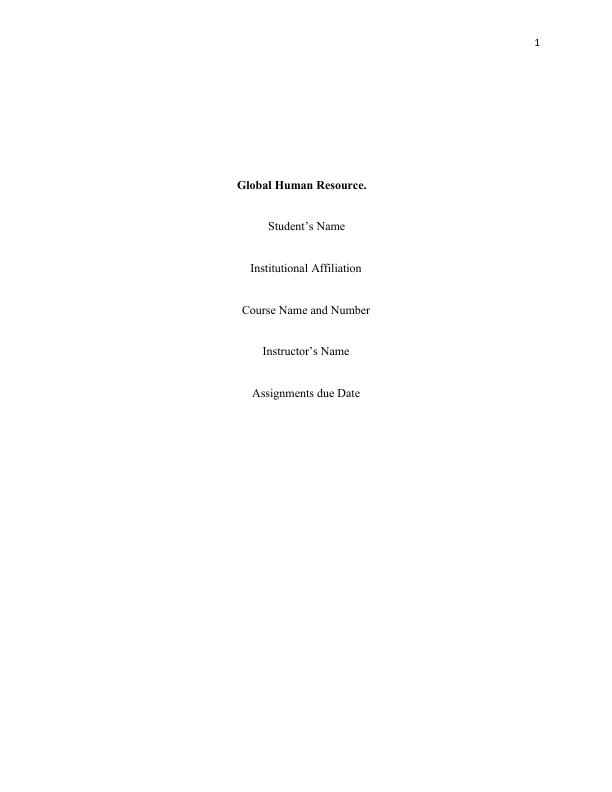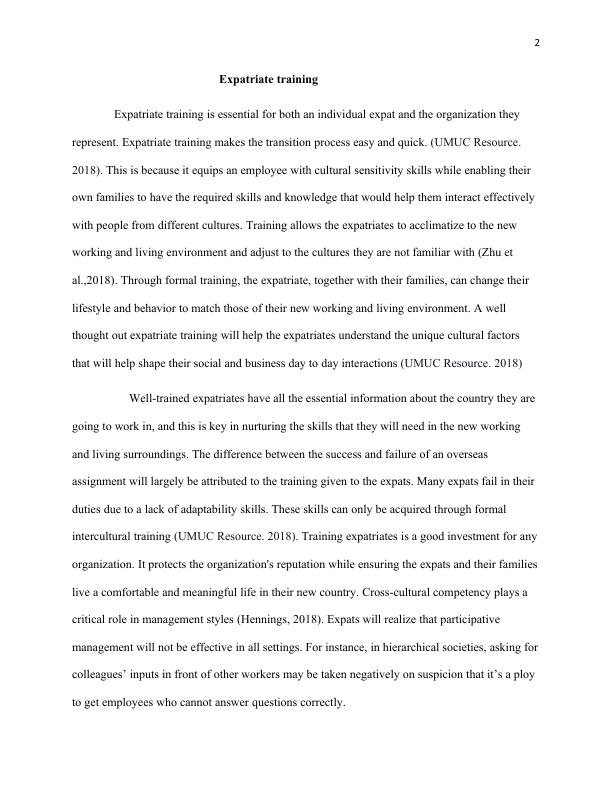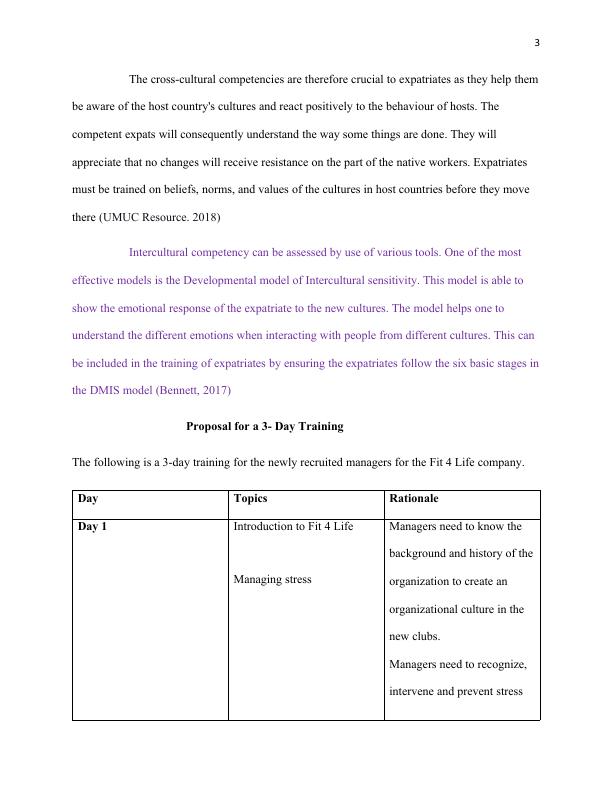Global Human Resource PDF
10 Pages1364 Words38 Views
Added on 2022-01-17
Global Human Resource PDF
Added on 2022-01-17
ShareRelated Documents
End of preview
Want to access all the pages? Upload your documents or become a member.
Impact of Cross-Cultural Training on Expatriate’s Success
|3
|439
|13
Cross Cultural Training and Communication
|14
|4702
|33
Report on Critically Evaluate - Expatriate
|9
|2720
|79
International Human Resource Management
|10
|2299
|459
International Management: Challenges and Solutions for Expatriate Management
|10
|3224
|116
Importance of Cross Cultural Training for Australian Expatriates
|10
|3208
|133



